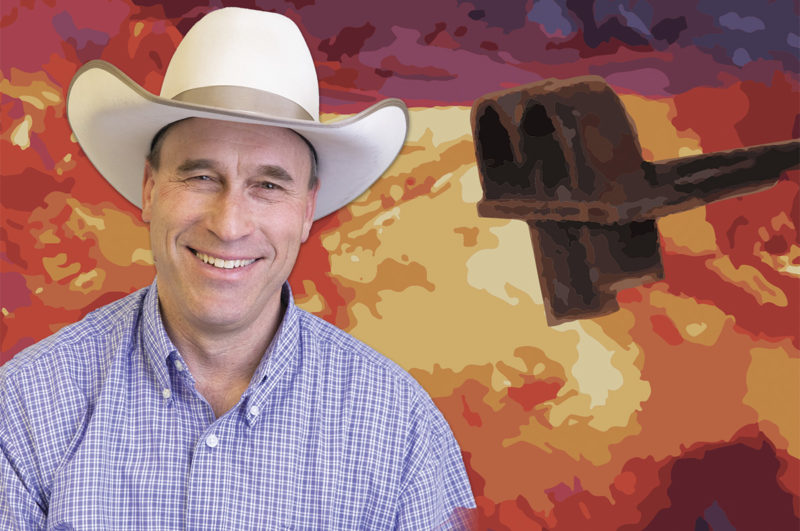With apologies to any Yellowstone fans, I’m hypercritical of anything out of Hollywood that tries to portray the Western, small town or agricultural lifestyle. Very rarely do they get much of it right. I even cringe when I see a framed picture of John Wayne, complete with a quote from one of his movies that’s attributed directly to Mr. Wayne, himself, because it’s, you know … a quote from a movie.
All of my critical cynicism aside, however, I can still occasionally let my guard down enough to enjoy what I consider to be quality cinematic entertainment. Perhaps my favorite movie of all time is The Cowboys, the 1972 John Wayne classic featuring, among several other up-and-coming and now-forgotten actors, a 10-year-old Clay O’Brien Cooper as the pint-sized Hardy Fimps.
As just a little kid myself, I fell in love with the movie when I first saw it. It seemed to ring true to me, and it reflected the image I figured the world needed to see to grasp what cowboys really are. To be sure, Bruce Dern, as Asa Watts, the evil and menacing antagonist, scared the bejesus out of me. His portrayal of malevolence, in my mind anyway, is second only to that of the evil witch and her flying monkey minions from the Wizard of Oz as the creepiest movie villain of all time. Maybe that’s why I could empathize with and cheer for the young heroes of the movie even that much more.
Also, nobody appreciates a profound and concise quote more than I do, and the script from The Cowboys offers up several noteworthy gems, my favorite of which is uttered by John Wayne’s character, Wil Andersen, near the climax of the story. Just before the fight that (spoiler alert) ultimately culminates in Mr. Andersen’s death, the villain (Asa Watts) asks Mr. Andersen just what kind of a man he (Andersen) thinks he (Watts) is. In reply, and without hesitation, the old worn-out hero replies, “You look like the vermin-ridden son of a (gun*) you are.”
The timing and delivery of the line within the script couldn’t be better and I think it perfectly captures what any viewer of the movie with half a heart and half a brain feels at that moment. Long Hair displays absolutely no virtuous qualities, yet up to that point in the story has been rewarded for every calculated, evil decision he has made. The character is easy to despise. His actions and the way he lived and the message it portrayed is really who he was.
Besides the cowboy theme, maybe one of the reasons I like the movie so much is because, despite the semipredictable outcome where the good guys ultimately win, the palpable melancholy and the subdued joy of the finale seem to accurately depict how real life sometimes is. I like to think that good will always eventually win, but I’m not so naïve as to not understand that light’s triumph over darkness is rarely won without a cost. More importantly, though, I also understand that the prize is more valuable than the cost. That’s a truth that’s often difficult to embrace in the moment.
Whether we like it or not, how we act and how we live our lives presents an open book and a rent-free movie for all to read and see. And, for better or worse, a person’s life is more on display in this day and age than it’s ever been before. Even more troubling is the fact that your entire life may be judged from just one scene from your movie or one page from your book. Despite that gloomy thought, we certainly should not be dissuaded from trying to fix our screwups or right our wrongs.
Redemption is one of the most gratifying and cleansing things a person can experience in life, and there’s not a soul who isn’t in need of its relieving and comforting power. As good as repairing our past mistakes may be, the better option is to avoid the errors in the first place. It’s wise to remember that everything we do reflects the message we send – the good and the bad. I’ve often wondered what message I would give to the world if I were required or asked to do so. I’ve written a whole pile of stories, most of them replete with some sort of message, yet I don’t think I’ve written enough, either in quality or quantity, to relay that perfect message. But it hits me even as I finish this story that my message is out there, regardless of what I may write. My message can’t really be perfectly portrayed on a sheet of paper or on a computer screen. My life is my message.











